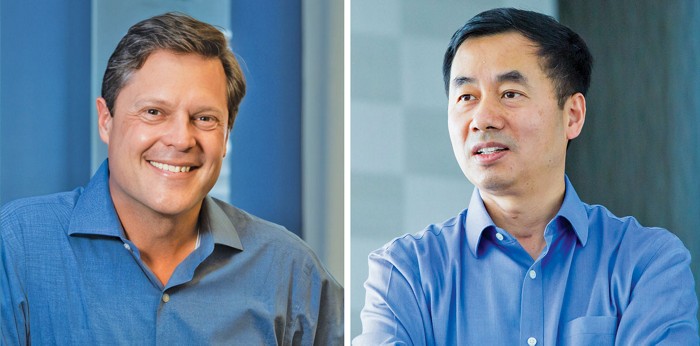Advertisement
Grab your lab coat. Let's get started
Welcome!
Welcome!
Create an account below to get 6 C&EN articles per month, receive newsletters and more - all free.
It seems this is your first time logging in online. Please enter the following information to continue.
As an ACS member you automatically get access to this site. All we need is few more details to create your reading experience.
Not you? Sign in with a different account.
Not you? Sign in with a different account.
ERROR 1
ERROR 1
ERROR 2
ERROR 2
ERROR 2
ERROR 2
ERROR 2
Password and Confirm password must match.
If you have an ACS member number, please enter it here so we can link this account to your membership. (optional)
ERROR 2
ACS values your privacy. By submitting your information, you are gaining access to C&EN and subscribing to our weekly newsletter. We use the information you provide to make your reading experience better, and we will never sell your data to third party members.
Oncology
Sanofi pays $50 million for Revolution Medicines’ SHP2 inhibitor
The partners expect to begin clinical studies of the compound later this year
by Lisa Jarvis
July 18, 2018
| A version of this story appeared in
Volume 96, Issue 30

In its first major deal, Revolution Medicines will receive $50 million from Sanofi in exchange for sharing rights to its lead drug candidate, the SHP2 inhibitor RMC-4630. The Redwood City, Calif.-based firm could see another $500 million in milestone payments as the allosteric inhibitor winds towards the market.
When Sanofi and Revolution begin clinical trials of RMC-4630 in the second half of the year, it will be the first time one of the biotech’s compounds is tested in humans.
Revolution was launched in 2015 based on technology developed in the labs of University of Illinois, Urbana-Champaign, organic chemist Martin D. Burke, who a year earlier had unveiled a method for easily creating complex molecules—in some cases natural products never before synthesized—from a dozen basic building blocks.
Burke’s group then invented a machine that uses plug-in cartridges containing those building blocks to automate compound assembly. Revolution subsequently worked to turn Burke’s lab prototype into a commercially robust machine. The company has also broadened its drug discovery capabilities while narrowing its therapeutic focus to cancer.
Revolution identified SHP2 as an intriguing oncology target within its first year of operation. Because the biology around the enzyme was not well known, the firm’s scientists first had to develop tool compounds to probe it.
In collaboration with University of California, San Francisco, medical oncologist Trever Bivona, the researchers figured out that when certain players in the cancer-connected Ras/MAP kinase signaling pathway are mutated, they become dependent on SHP2 to amplify their signal. Revolution developed RMC-4630 to inhibit SHP2.
Sanofi and Revolution can now test its drug in people with cancers featuring such mutations, which Revolution CEO Mark A. Goldsmith says account for up to 20% of non-small-cell lung cancer cases, for its clinical studies of RMC-4630. “For those tumors, there are no precision oncology or targeted therapeutics available today,” he adds.
The partnership with Sanofi gives Revolution the financial freedom to develop other compounds in its pipeline on its own. Although Revolution isn’t averse to other collaborations, “with this deal in place, I think we have no pressure to do any other deals around our other programs,” Goldsmith says.”



Join the conversation
Contact the reporter
Submit a Letter to the Editor for publication
Engage with us on Twitter